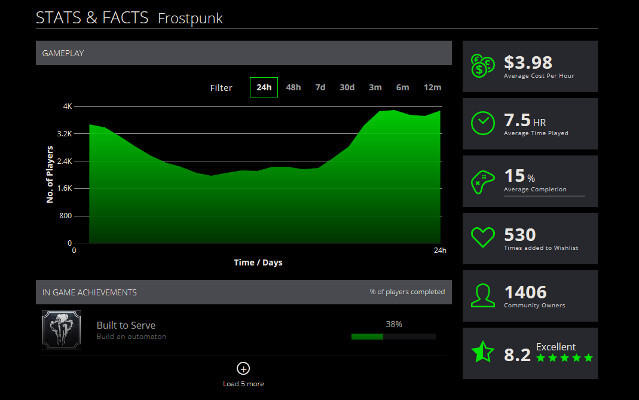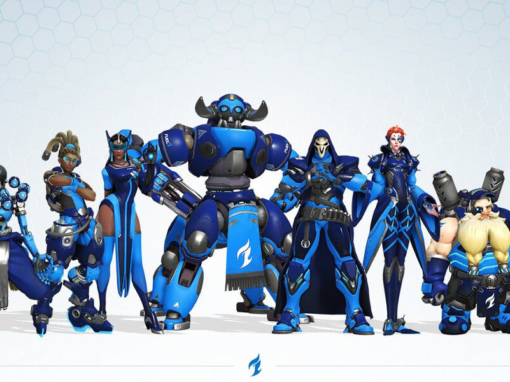Is Average Cost Per Hour the New Way to Review Games?
Is Average Cost Per Hour the New Way to Review Games?
According to Green Man Gaming, it is. In the past week, the digital storefront has come under heavy fire from developers and gamers alike after implementing a new system included on every game’s storefront. When a user clicks onto a game, they will first be given reviews and images, but scrolling down farther will reveal a chart and stats for the game. Listed prominently at the top of the stats is a new one – Average Cost Per Hour. The stat breaks down – on average – how much each hour of play will cost a user. This number is pulled from the average time users play the game and divided by the cost of the game.

In theory, this should provide users with a realistic look at how much bang they get for their buck. A very short game, say 2 hours, would register a very high CPH (Cost Per Hour) unless it was very cheap. A very long game, 100+ hours, would have a remarkably low CPH. Some, however, disagree that CPH is taking game review in a positive direction.
While some have criticized open-world and endless side quests and have instead cried out for quality over quantity, the gaming market as a whole has not echoed these sentiments. One of the first questions for almost any game is in regards to it being open-world. A next big runner-up is if the game has a crafting system. Both of those elements are often coupled with huge time costs. Last on that list of questions is generally how long the game is.
The CEO of Green Man Gaming, Paul Sulyok, defended CPH in a discussion with PCGamesInsider.biz.
“We believe that playing video games is a very cost effective form of entertainment and the cost per hour stat allows the community to make informed choices… The stat was introduced in response to demand from our community who were looking for different ways of deciding how to spend their money.”
The length of a game is certainly an important factor. However, CPH isn’t exactly concerned with average game length. Instead, it is designed to put a price tag on a game based on its length. The price, not the length, is what CPH is concerned with. This is what most developers and gamers have a problem with. Jim Sterling rightly points out that this system in no way accurately depicts the experience of a game. A true quality game, he explains, has nothing to do with time spent and entirely to do with the quality of that time. His prime example is Portal.
Portal took most gamers just a few hours to complete – sometimes as little as two – but the game has had an influence on all of gaming and gaming culture. Despite the shortness of the game, it has been consistently called one of the most perfect games ever created, with a blend of story, environment, music, and gameplay that is without equal. CPH cannot account for a game of incredibly high quality but relatively short length. By CPH’s standards, Portal would be a fairly terrible value. MMOs and online games would appear to be the only games worth buying when looking at the CPH. For reviewers and developers, this seems to paint single-player and shorter titles in a negative light.
For now, Green Man Gaming is still sticking by its guns, but few gamers, if any, have voiced much support for the system.
Also…
Don’t forget to check out some of our other weekly pieces, The LoL Weekly Preview, Recap and Highlight, as well as something I’m Forgetting and Week in Review.



